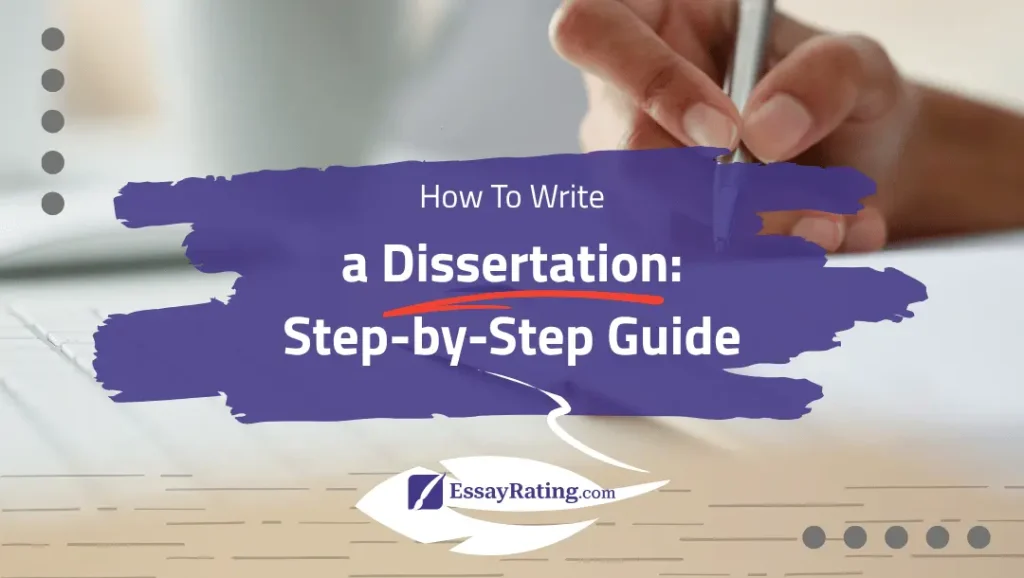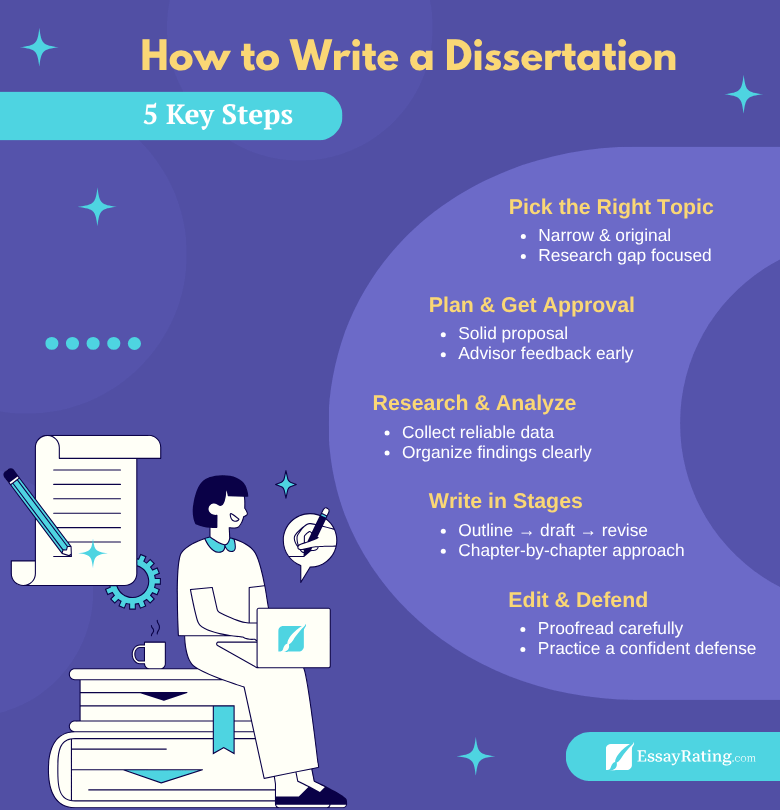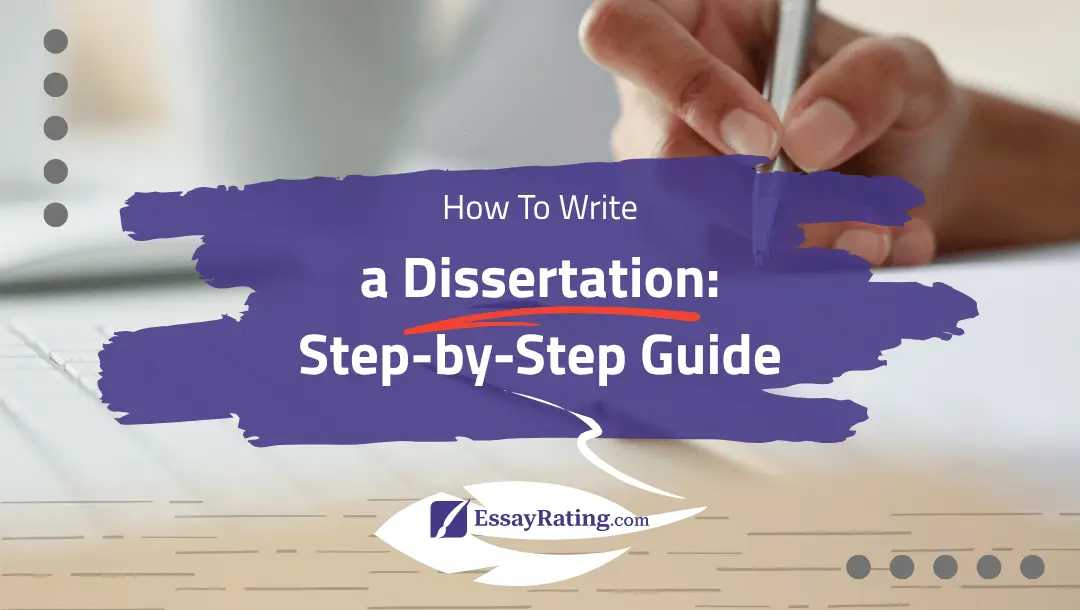How to Write a Dissertation: The Complete Step-by-Step Guide
Last updated: January 12, 2026 • 6 min read

Writing a dissertation can seem overwhelming, especially considering the extensive research and effort required. A dissertation is more than just a large academic paper—it’s your chance to make a meaningful contribution to your field and demonstrate your mastery. This guide simplifies the process, showing you exactly how to structure, research, write, and finish your dissertation confidently.
What Is a Dissertation and Why Is It Important?
A dissertation is essentially your final research project, often required to complete an undergraduate, master’s, or doctoral degree. It showcases your ability to conduct original research, analyze findings, and contribute valuable insights to your academic discipline.
In different countries, terms may vary. In the US, dissertations typically refer to doctoral studies, while theses are common at bachelor’s and master’s levels. In contrast, the UK uses “dissertation” primarily for undergraduate studies.
Dissertation Length: What to Expect
The length of a dissertation varies significantly depending on your academic level and subject area:
- Bachelor’s: Approximately 10,000–15,000 words (35–50 pages)
- Master’s: Around 18,000–22,000 words (65–80 pages)
- Doctorate: Typically 80,000–100,000 words (200–300 pages)
Remember, STEM dissertations are often shorter compared to humanities and social sciences dissertations due to different methodologies and research structures.
Essential Dissertation Structure Explained
Dissertations generally have a clear, standardized structure:
- Title Page: Clearly indicates your research topic and details.
- Abstract: A brief summary (300–500 words) outlining your research.
- Table of Contents: Lists all chapters, sections, and subsections with page numbers.
- Introduction: Provides context, states the research question, and sets the stage.
- Literature Review: Critically examines existing literature, identifies research gaps, and establishes your theoretical framework.
- Methodology: Details how you conducted your research, explaining your methods, tools, and approaches.
- Results: Presents your research findings clearly and logically.
- Discussion: Analyzes and interprets your results within the wider context of your discipline.
- Conclusion: Summarizes findings and reiterates your research significance.
- Bibliography/References: Properly formatted citations of all sources.
- Appendices: Supplemental materials, such as raw data, transcripts, or detailed methods.
Step-by-Step Guide: Writing Your Dissertation
Step 1: Select a Strong, Relevant Topic
Choosing a compelling topic with clear research questions is crucial. Look for a research gap—areas that require further exploration or clarity.
Step 2: Conduct Preliminary Research
Initial research helps refine your topic and identify key resources. Use this phase to build a foundation for your literature review.
Step 3: Submit a Research Proposal
For advanced degrees, you’ll typically need approval for your topic and methodology. A clear proposal outlines your intended research approach.
Step 4: Conduct Primary Research
This phase involves in-depth research—collecting and analyzing primary and secondary data relevant to your topic.
Step 5: Create a Detailed Dissertation Outline
An outline organizes your dissertation, ensuring a logical flow. Outline each chapter clearly to simplify the writing process.
Step 6: Write Your First Draft
Using your outline, begin drafting your dissertation. Don’t aim for perfection—focus on clearly presenting your research and analysis.
Step 7: Get Adviser Feedback
It’s essential to get critical feedback from your adviser. Regular consultation can highlight issues early, preventing major revisions later.
Step 8: Gather Additional Feedback
Additionally, reach out to other experts or peers knowledgeable about your topic. Multiple perspectives improve the quality and coherence of your dissertation.
Step 9: Write the Final Draft
Incorporate feedback, refine your arguments, and strengthen your analysis. Ensure every chapter logically flows into the next.
Step 10: Edit and Proofread Thoroughly
Carefully proofread your dissertation multiple times for grammar, spelling, and formatting errors. Consider professional editing help for polished results.
Step 11: Prepare for Dissertation Defense
A successful defense involves confidently presenting your research and answering committee questions clearly and convincingly.

Human-Written vs AI-Generated Dissertation: A Comparison
| AI-generated | Human-written | |
|---|---|---|
| Originality | Easily flagged | Unique insights and analysis |
| Analysis Depth | Generic, superficial | Critical, insightful |
| Sources & Citations | Frequently outdated or incorrect | Reliable, current, verifiable |
| Defense Readiness | Poor under questioning | Prepared, confident, and knowledgeable |
Common Dissertation Mistakes to Avoid
Avoid these common pitfalls to enhance your dissertation:
- Choosing overly broad topics that lack clear focus.
- Poor time management, resulting in rushed, incomplete research.
- Inadequate proofreading leading to avoidable errors.
Frequently Asked Questions
Essay Services You May Like





